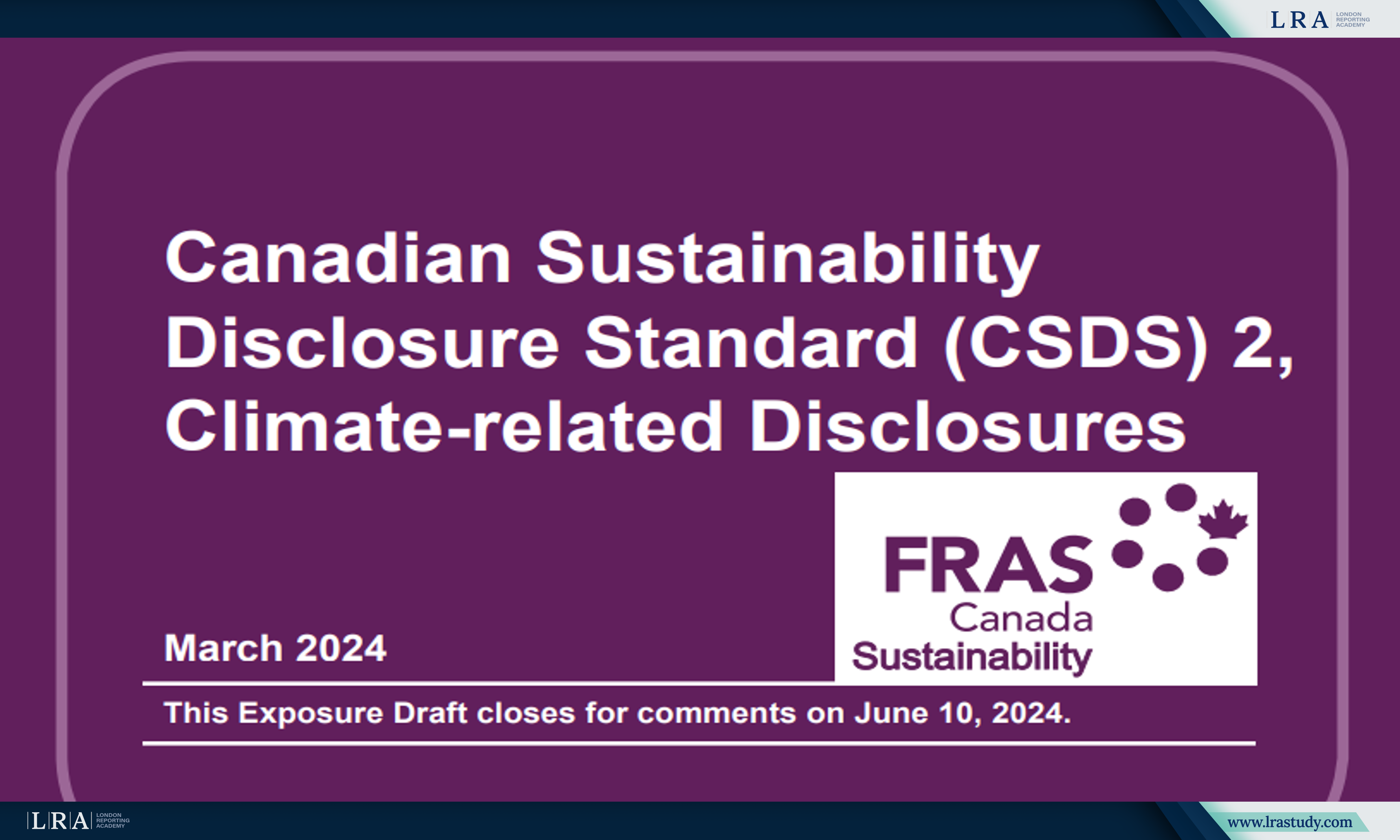Canadian CSSB Releases Sustainability and Climate Reporting Standards Tailored to National Context
The Canadian Sustainability Standards Board (CSSB) has introduced the final version of the Canadian Sustainability Disclosure Standards (CSDS), which are based on the international frameworks of the ISSB. While aligning with global standards, the CSDS offer more flexible timelines for implementing key requirements, such as accounting for greenhouse gas emissions across the value chain. These standards aim to enhance transparency in sustainability practices, particularly climate-related disclosures, and support organisations in their transition to a sustainable, low-carbon economy.

On 18 December 2024, the final versions of the Canadian Sustainability Disclosure Standards (CSDS 1 and CSDS 2) were published. The Canadian Sustainability Standards Board (CSSB) initially released draft versions of them in March 2024, followed by a public consultation period, which ended on 10 June 2024. CSDS 1 and CSDS 2 will come into effect on a voluntary basis for financial years beginning on or after 1 January 2025. Since the introduction of the standards, Canadian companies have begun implementing them. It is important to note that the CSSB has provided transitional periods for certain requirements.
For example, companies have been granted deferrals of up to three years to account for Scope 3 greenhouse gas emissions and conduct quantitative climate impact assessments. These measures are aimed at easing the adaptation process for businesses and ensuring the effective implementation of the standards in Canada starting next year.
Development Context
Work on the new reporting framework in Canada began in 2021, when Prime Minister Justin Trudeau tasked his cabinet with adapting standards developed by the Task Force on Climate-Related Financial Disclosures (TCFD). In October 2024, the government announced mandatory climate reporting for large companies, while allowing small businesses to disclose voluntarily.
Established in 2022, CSSB collaborates with ISSB to promote the adoption of international standards within Canada. The released documents include two key standards:
- CSDS 1 — General Requirements for Sustainability-Related Disclosures;
- CSDS 2 — Climate-Related Disclosure Standards.
Both documents are grounded in the international IFRS S1 and IFRS S2 standards but have been adapted to Canadian realities.
Key Changes and Relaxations
The initial CSDS draft, published in March 2024, included several relaxations of ISSB requirements. Following consultations with stakeholders, the final standards provide companies with additional deferrals:
- Up to 3 years for disclosing Scope 3 emissions;
- Up to 3 years for publishing information on non-climate-related sustainability issues;
- An additional 2 years to align financial and sustainability reporting timelines;
- A three-year period for implementing quantitative scenario analyses of climate impacts.
CSDS 1: General Requirements for Sustainability-Related Disclosures
CSDS 1 establishes requirements for organisations to disclose information on sustainability-related risks and opportunities. These factors may affect cash flows, access to finance, and the cost of capital over the short, medium, and long term. The standard focuses on key areas, including governance processes, strategy, risk management, and the financial implications of sustainability.
Organisations must disclose governance processes and controls used to monitor and manage sustainability-related risks, along with strategies for addressing these risks and opportunities. They are also required to assess how sustainability risks impact business models and financial resilience over time.
Key elements of CSDS 1 include:
- Identifying and disclosing sustainability-related risks and opportunities;
- Reporting on the management of these risks and their financial impact;
- Providing metrics, targets, and progress updates on sustainability challenges.
To ensure consistency and comparability, CSDS 1 recommends using frameworks like the GHG Protocol for emissions data and the Task Force on Climate-related Financial Disclosures (TCFD) guidelines. These tools help ensure comprehensive and decision-useful sustainability-related financial reporting.
CSDS 2: Climate-Related Disclosure Standards
CSDS 2 specifies requirements for organisations to disclose information about climate-related risks and opportunities. These disclosures focus on how climate factors affect cash flows, access to finance, and the cost of capital over the short, medium, and long term. The standard highlights the importance of climate resilience and the management of physical and transition risks.
Organisations are required to disclose greenhouse gas emissions across all categories (Scope 1, 2, and 3) and assess how climate-related risks and opportunities influence their business models.
Core aspects covered by CSDS 2 include:
- Conducting quantitative assessments of emissions and categorising them as Scope 1, 2, or 3;
- Evaluating the impact of climate risks on financial resilience;
- Implementing resilience evaluations using appropriate methods.

Sourсe: CSSB's Exposure Draft, Canadian Sustainability Disclosure Standard (CSDS) 2, Climate-related Disclosures, March 2024
CSDS 2 also recommends applying established frameworks like the GHG Protocol and TCFD to enhance data quality and reporting consistency.
Implications for Businesses
The introduction of CSDS 1 and CSDS 2 carries significant implications for companies operating in Canada. These standards enhance investor confidence by ensuring transparency and consistency in data disclosure. They also strengthen the competitiveness of companies prepared to align with international requirements. Furthermore, businesses are supported in better assessing and managing climate-related risks while seizing emerging opportunities. Implementing these standards gives companies a competitive edge by demonstrating a commitment to sustainability and adherence to global best practices.
Conclusions
The implementation of CSDS highlights Canada’s efforts to create a reporting framework that aligns with international standards while remaining practical and adaptable for local businesses. Key challenges include harmonising implementation timelines and supporting organisations in adapting to new requirements. Overcoming these challenges requires continued collaboration among businesses, government, and civil society. The CSDS standards lay the groundwork for more transparent and effective management of sustainability and climate-related risks, fostering trust among stakeholders.



